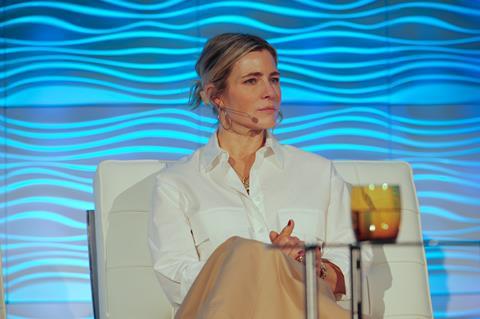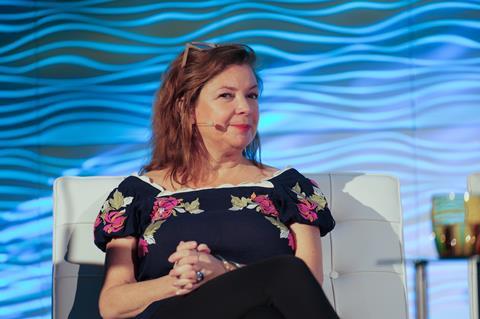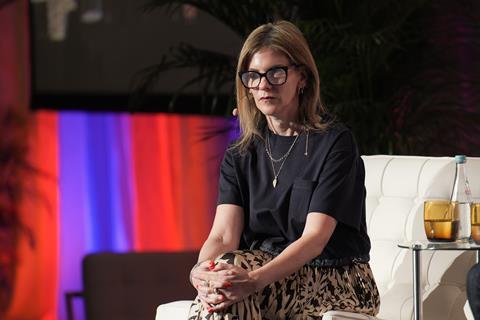Financing and return on investment is now the central focus for most buyers
It didn’t matter who you talked to at Realscreen and Natpe Global this week in Miami, the discussions inevitably ended up coming back to money – or the lack of it.
For an industry that needs to generate profits to survive in the long term, this should come as no surprise. Yet the buy side of the industry has in many ways eschewed this fundamental over recent years, and producers and distributors are now attempting to pick up the pieces.
Talking to execs in the lobbies and bars of downtown Miami, it’s clear that the industry remains in a seriously tricky spot on most fronts. Few producers want to go on the record to discuss the state of unscripted in the US or the UK, while scripted distributors have reached breaking point when it comes to stumping up ever more cash to fill deficits.

Advertisers have had their attention turned by social, streamers are slicing and dicing data and finding they don’t actually need as much as they thought they might, and younger, increasingly nimble producers are experimenting on services such as YouTube at a fraction of the cost that a traditional TV show would cost.
Predictably, the networks are trimming their cloth, or “recalibrating” as Warner Bros. Discovery’s Jason Sarlanis put it.
The president of TNT, TBS, TruTV, ID and HLN, plus linear and streaming at WBD, knows better than most about the pressures of delivering a profit from the creative process, and he admitted that his focus is on “being realistic across the entire environment”, where licence fees are “very different” to what they were six or seven years ago.
With less to spend, producers are demanding more flexibility on rights, as Critical Content’s president Jenny Daly argued. Allowing a production company to take a cancelled show to a new home would mitigate the impact, she continued: “If it doesn’t look like there’ll be a second season then let’s be partners - frankly, let me hustle it.”

Versions of that phrase arose frequently over the week, putting the business model that supports shows of flavours coming under scrutiny.
Heather Olander, head of unscripted at The CW, was clear that she wants shows that “don’t lose money” and admitted that the focus on the financing model behind a series has never been greater during her career to date.
Elaine Frontain Bryant, exec vice-president and head of programming at A&E, Lifetime & LMN, agreed. “Gone are the days of walking in and saying, I just love this show, trust me it will work,” she said.
“Now it’s about saying I believe in this show, my team have developed it and we’ve worked within our development strategy so we’re confident that we can use this content around the world.”
New methods of funding are of course being explored and Olander added that “serious discussions” are being had with advertisers and brands to fund her programming. Branded content has offered potential for years, of course, but it seems like wheels are shifting now, according to agency execs at CAA and Publicis.

“Brands have become more sophisticated in how storytelling is happening and they understand that the success of a series is going to help the brand,” said Allie Dvorin, senior vice-president of entertainment at Publicis Media.
“They don’t have to be heavy handed. Brands want success of the series and they know that if [their involvement] is overt the audience won’t want it.”
Companies such as The Morning Show producer Hello Sunshine have been pushing further into working with brands on shows, with its recent series Side Hustle entering a second series on Roku. The launch of Starbucks Studios last year was also another indicator that brands’ interest in content may not be just hot air.
Distributors, meanwhile, are attempting to navigate the pull-back in spend from US-based streamers, and it’s clear the squeeze especially on scripted is real.
Yet they are also celebrating the increased appeal of windowing to commissioners, with Rebecca Glashow, BBC Studios chief executive officer of global media and streaming, clear in her opinion that it should never have gone away to the extent that it did.
Effective windowing can, of course, create further value from programming and in today’s budget-conscious world that is key. But whether it can deliver sufficiently to keep the lights on at many production companies around the world is unclear, particularly as they battle to compete with lower cost, YouTube-first creators.
Either way, the current state of play is clear and perhaps best surmised by BossaNova’s chief exec, Paul Heaney. “Content was king, now the business model is king,” he said, and everyone nodded their heads.





No comments yet